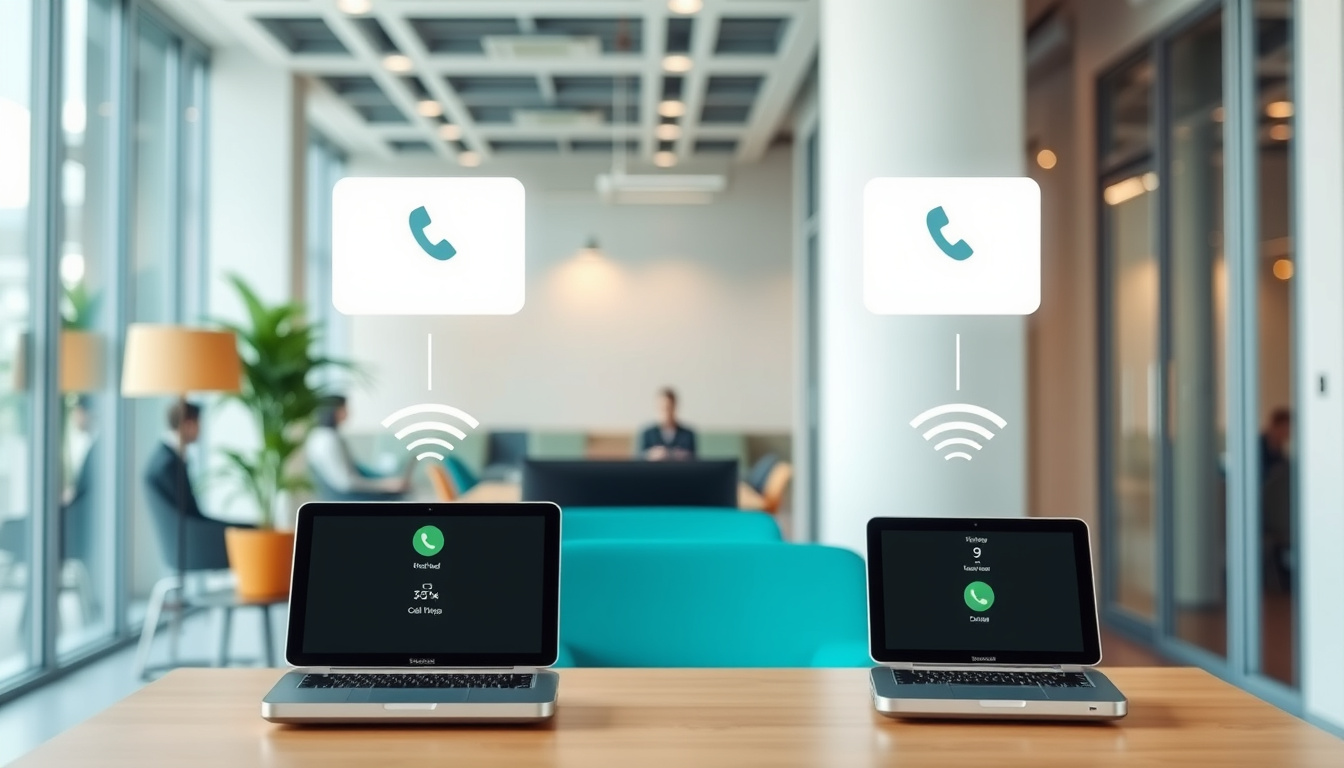In today’s business world, speed matters. Clear talk is key. A call forwarding service aids this goal. It routes calls so none go unseen. This tool boosts work flow and keeps customers pleased.
In this article, we show how call forwarding lifts your team’s talk, list its perks, and share ways to use it well.
What is a Call Forwarding Service?
A call forwarding service redirects calls. It sends calls from one number to another. For instance, calls can go from an office line to a mobile phone. This keeps talk flowing, whether an employee works on-site or not. If someone leaves the office, calls go to their mobile or to a colleague.
Key Benefits of Using a Call Forwarding Service
A call forwarding service makes work flow smoother. Consider its perks:
-
Never Miss Important Calls:
The system directs calls to the right person, even if they are away. -
Improved Customer Experience:
Customers reach the proper team quickly, cutting down wait times. -
Business Continuity:
Even in closures or emergencies, calls are still handled. -
Cost Efficiency:
It lessens the need for pricey phone systems and supports flexible staffing. -
Increased Flexibility:
Staff work from anywhere and stay linked to important calls. -
Better Call Management:
You set rules by time, caller, or other criteria to keep calls on track.
How Call Forwarding Service Enhances Business Communication Efficiency
1. Streamlined Call Routing
Call forwarding moves calls fast. It sends them straight to the right person or group. This cuts wait times and eases customer worries.
2. Supports Remote and Hybrid Work Models
Remote work grows each day. Call forwarding keeps workers in touch, no matter their spot. They work from home, travel, or join meetings while calls move to their device.

3. Enables Prioritization of Calls
Advanced options set call priorities. For example, VIP calls can reach senior managers instantly. High-priority calls then get quick attention.
4. Reduces Missed Opportunities
A missed call can cost a sale or a happy client. Call forwarding sends every call to an active team member. This cuts loss and boosts chance.
5. Simplifies After-Hours Support
After hours, rules send calls to support lines, voicemail, or mobiles. This keeps customer service online around the clock without high staffing costs.
Types of Call Forwarding Methods for Business
Businesses use several call forwarding types:
-
Unconditional Forwarding:
Every call goes to a set number. -
Conditional Forwarding:
Calls go only when conditions like “busy” or “no answer” occur. -
Selective Forwarding:
Calls from specific numbers reach chosen team members. -
Remote Call Forwarding:
Calls are sent to numbers located off-site.
Choose the set-up that fits your business needs, call flow, and customer style.
Implementing Call Forwarding Service in Your Business: A Step-by-Step Guide
-
Evaluate Your Communication Needs:
Check peak call times, busiest groups, and after-hours talk. -
Select a Reliable Provider:
Pick a service with many options that can grow with you. Look at providers like RingCentral, Nextiva, or Grasshopper. -
Configure Forwarding Rules:
Decide when and how each call moves. Choose unconditional, conditional, or selective paths. -
Train Your Team:
Help staff learn the new system and manage forwarded calls. -
Test Your Setup:
Run tests. Ensure calls reach the right people under different scenarios. -
Monitor and Optimize:
Use call data to watch flow and adjust rules when needed.
Best Practices for Maximizing Call Forwarding Benefits
-
Set Clear Protocols:
Let everyone know who gets calls after forwarding to avoid mix-ups. -
Integrate with CRM Systems:
Link forwarding and customer tools. This gives staff instant caller info for a personal touch. -
Regularly Review Call Data:
Study call numbers and times. This helps fine-tune rules and staff plans. -
Communicate Clearly with Callers:
Use custom greetings that explain call routing and wait times.
Call Forwarding Service and Business Communication Trends
Cloud telephony has made call forwarding a strong tool. AI integrations now predict the best ways to route calls using past data and customer profiles. This makes talk even smoother.
Frequently Asked Questions (FAQs)
Q1: How does a call forwarding service improve business communication efficiency?
A1: It sends calls to free staff or the right group. This cuts missed calls and long waits. It also supports remote work and after-hours talk.
Q2: Can call forwarding services be customized for different business needs?
A2: Yes, many services let you set conditional and selective rules. This tailors call paths by time, caller, or device availability.
Q3: Is call forwarding service suitable for small businesses or startups?
A3: Yes, call forwarding can scale to fit all sizes. It helps small businesses look professional without heavy phone expenses.
Final Thoughts: Transform Your Business Communication Today
A call forwarding service can boost how you connect with customers and manage your team. It makes sure calls reach someone fast and are routed well. This cuts missed calls, raises customer joy, and lifts work speed.
Do not let key calls slip away—choose a call forwarding service that fits your needs. Enjoy smoother, effective talk. Check out providers today and start the change!


